June 7, 2025 | 11:27 GMT +7
June 7, 2025 | 11:27 GMT +7
Hotline: 0913.378.918
June 7, 2025 | 11:27 GMT +7
Hotline: 0913.378.918
What are the main challenges in encouraging households to sort waste at the source, especially plastic waste, based on UNDP’s pilot projects in provinces like Binh Dinh and Quang Ninh? What solutions has UNDP introduced?
In Quy Nhon, UNDP partnered with local authorities to pilot waste sorting at the source with over 13,000 households participating. The biggest barrier wasn’t infrastructure, it was shifting public awareness and behaviour. Changing habits takes time, clear communication, and constant support from local authorities through education, monitoring, and enforcement.

Mr. Vu Thai Truong, Acting Head of the Climate Change and Environment Unit at the United Nations Development Programme (UNDP), spoke at a thematic workshop held ahead of the Intergovernmental Negotiating Committee on the Global Plastics Treaty in 2024.
Many households still confuse recyclable with non-recyclable plastics. In multigenerational families, not everyone shares the same awareness, making consistent sorting difficult. On top of that, a fragmented collection and recycling system undermines efforts, even when people are willing to participate.
To address these issues, UNDP helped set up an integrated system in Quy Nhon: two convenient recycling drop-off points, a community scrap-collection club, four electric trucks for recyclable transport, and a dedicated plastic recycling facility at Long My Waste Treatment Site.
From this experience, we believe that with strong local government leadership and proper infrastructure, waste sorting can become a daily habit, just like how Vietnamese people gradually adopted helmet use.
Vietnam is implementing Extended Producer Responsibility (EPR) for plastic waste. How is UNDP supporting this mechanism, especially for small and medium-sized enterprises (SMEs)?
UNDP is working closely with the Department of Environment to provide technical support for finalizing EPR policy, with the guiding decree expected by year’s end. EPR marks a transformative shift in waste management, offering sustainable financing and encouraging the growth of the recycling sector, especially plastic.
UNDP doesn’t directly implement the policy but supports capacity building for stakeholders. Large companies and multinationals are already familiar with EPR from operating in other countries, so they tend to prepare well and comply early.
SMEs, however, still lack awareness and have low registration rates. Therefore, UNDP is prioritizing outreach and training for these businesses to improve their understanding and compliance. EPR can only succeed when all actors, firms and regulators alike, understand their roles and responsibilities. Only then can it contribute to building a circular economy in Vietnam.
How does UNDP assess the potential for plastic recycling in Vietnam? What are the key bottlenecks in the recycling value chain, and what policies are needed to address them?
Plastic is one of the most pressing issues when discussing circular economy in Vietnam. Plastic pollution, often referred to as “white pollution,” is a growing problem both globally and domestically.
Vietnam has great potential in plastic recycling, but the value chain is riddled with obstacles. Sorting at source, although mandated by law and required from 2025, remains patchy due to poor coordination in communication, oversight, and infrastructure. Even when households sort correctly, waste is often remixed during collection because the system isn’t set up to handle recyclables separately.
A standout initiative is the “Fishing Boats Bring Plastic Back to Shore” program in Quy Nhon Port. With 200 boats equipped with mesh bags, this project has collected over 2,300 kg of recyclable plastic and aluminium in just 18 months, plastic that would otherwise be dumped into the sea.
In processing and recycling, the problem is poor-quality input. Ironically, domestic recyclers import waste materials from abroad while tonnes of local plastic end up landfilled or incinerated due to poor collection systems.
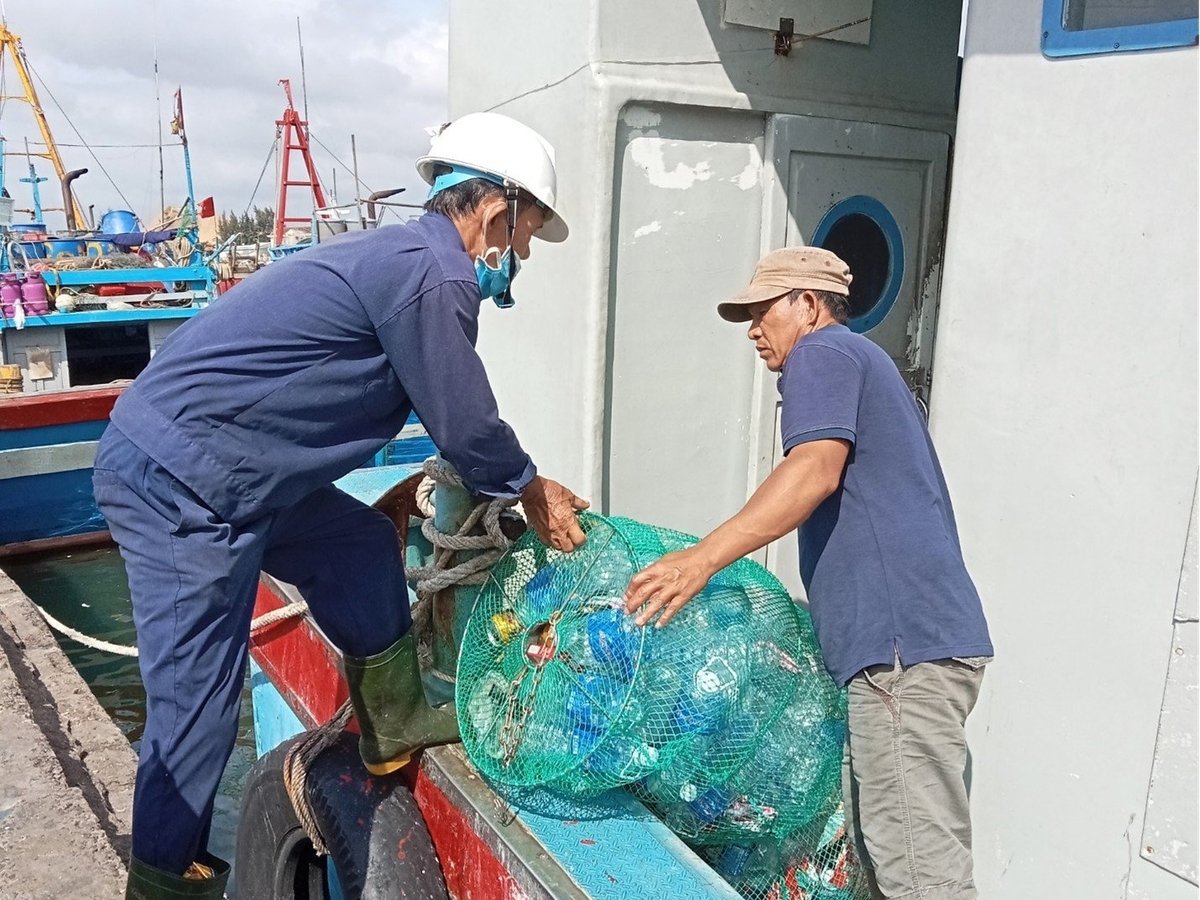
The Program on Fishing Boats Bring Plastic Back to Shore has the potential to scale up to some localities. Photo: Vietnam Circular Economy.
Financing is also an issue. Though EPR is starting to mobilize resources, redistribution to collection and recycling activities remains slow. Moreover, informal workers such as scrap collectors play a vital role in the system but are often overlooked and under-supported.
To resolve these issues, systemic and coordinated policies are essential: enforce sorting at the source, build suitable collection and recycling infrastructure, expand financial support via EPR, and formally integrate informal workers into the recycling value chain.
Waste workers, especially women, are vulnerable yet vital to the recycling system. What specific support has UNDP provided to improve their recognition, income, and inclusion?
Women in informal waste collection are key to sorting and recycling but often work in unsafe conditions with low, unstable incomes and no social protections. UNDP has implemented several initiatives to improve their livelihoods and recognition.
In Quang Ninh, we partnered with the Women’s Union to set up microcredit funds that have helped female collectors increase their incomes by at least 20%. In Quy Nhon, we supported the formation of a community-based scrap collection club with nearly 200 members, integrating them into the city’s pilot waste-sorting system and connecting them to recyclers.
Through the “Responsible Sourcing Initiative”—a collaboration with The Circulate Initiative and Duy Tan Recycling—we’ve provided safety training, personal protective equipment, microfinance access, tetanus vaccinations, and health insurance. We also encouraged recycling firms to embed responsible sourcing principles into their procurement policies, promoting social responsibility throughout the supply chain.
Additionally, under the National Plastic Action Partnership (NPAP), UNDP formed a Gender Equality and Inclusive Development Technical Group to conduct research and mobilize policy support for informal waste workers across multiple localities, including Hanoi, Hoi An, Binh Dinh, and Ho Chi Minh City.
Looking ahead, how will UNDP expand effective models like the “Fishing Boats Bring Plastic Back to Shore” initiative?
With support from the Norwegian Government, this model has already shown strong potential for replication. The 200 fishing boats in Quy Nhon have proven that with proper equipment like custom mesh bags, plastic can be collected during each sea voyage rather than dumped.
UNDP plans to scale this model to coastal provinces such as Nam Dinh, Khanh Hoa, and Binh Thuan. This approach offers a practical, sustainable way to reduce ocean plastic pollution at the source and strengthen local recycling systems.
Thank you for your insights!
Translated by Linh Linh
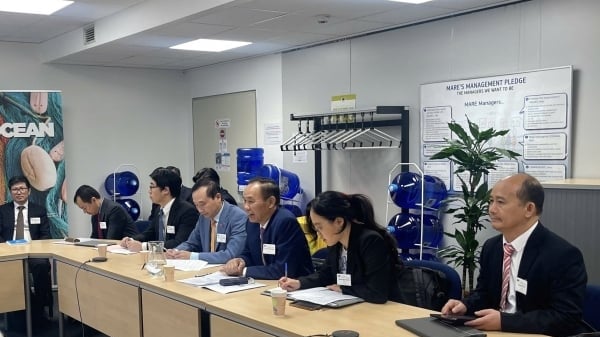
(VAN) On June 5, Deputy Minister of Agriculture and Environment Phung Duc Tien held a working session with the Directorate-General for Maritime Affairs and Fisheries of the European Commission (DG MARE).
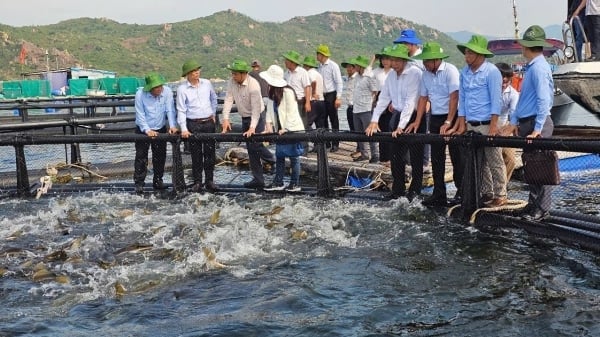
(VAN) According to Prof. Dr. Mai Trong Nhuan, former Director of Vietnam National University, Hanoi, the national ocean spatial plan is devised to guide the ocean economy toward achieving its key objectives.
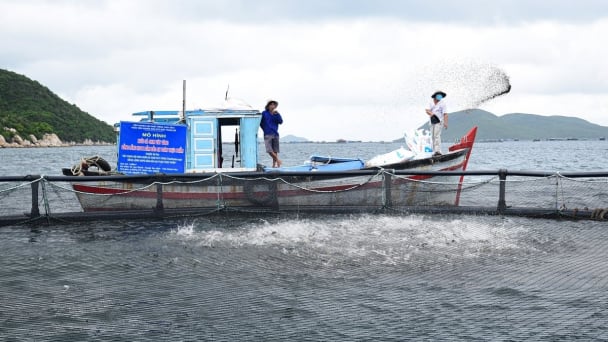
(VAN) Vietnam’s aquatic resources decreased from over 5 million tons in the period 2000-2005 to just over 3.9 million tons in the period 2016-2020.
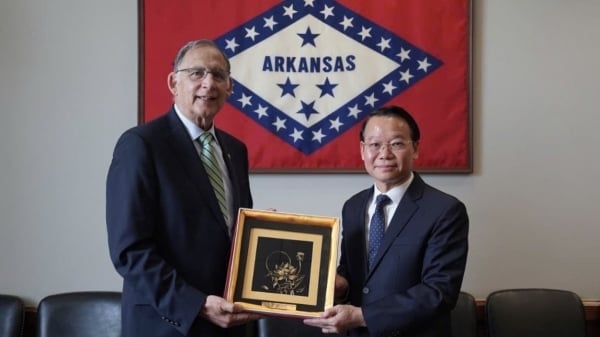
(VAN) The U.S. Congress recognizes Vietnam's role as a reliable and dynamic economic partner in the Asia-Pacific region.
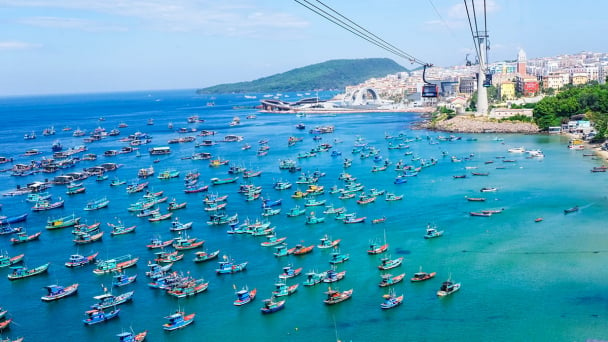
(VAN) Vietnam Sea and Island Week 2025 is a powerful call to action for connecting technology and unlocking policies, aiming towards a modern, sustainable blue ocean.
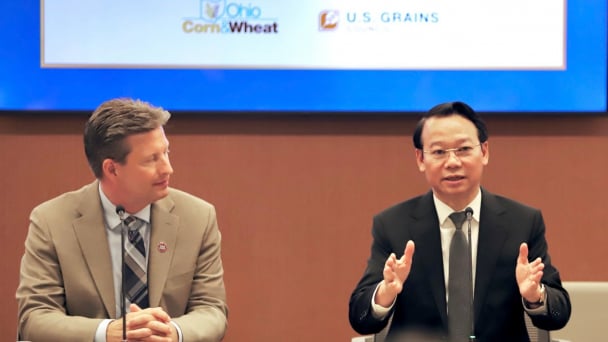
(VAN) With its rapidly growing agricultural economy, Vietnam has become a top destination for U.S. businesses seeking to strengthen their presence in Southeast Asia.